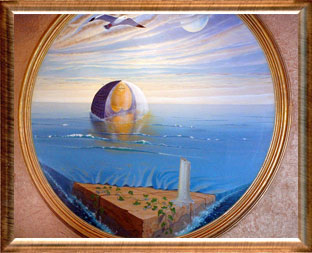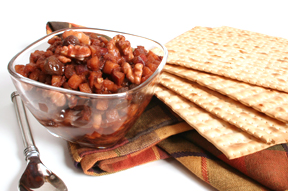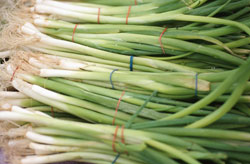 It is 1979, my first night of Seder in America since I fled Iran eight months before. My husband remains back in Iran, hoping to salvage a small part of our valuable properties, our home and business, a chewing gum factory that remains the largest in the Middle East. “Come with us,” I insisted, “It’s too dangerous, especially for Jews.”
It is 1979, my first night of Seder in America since I fled Iran eight months before. My husband remains back in Iran, hoping to salvage a small part of our valuable properties, our home and business, a chewing gum factory that remains the largest in the Middle East. “Come with us,” I insisted, “It’s too dangerous, especially for Jews.”
He would not hear of it. I was "being an alarmist", as always, he will join us "in a few weeks", a couple of months at most.
Now, in hindsight, I realize that we were blinded by a certain naiveté and senseless hope that is common with having lived in comfort—this could not be the end of Mohammad Reza Pahlavi who had, with enormous pomp, crowned himself King of Kings in 1967.
We were wrong of course. Once we landed in LAX, I learned that the Air France Plane that carried me and my daughters, age two and ten, to safety was the last allowed out of Iran before Mehrabad Airport was shut down by the Islamic Revolutionaries. It would take another three years before my husband would be allowed to leave the country.
But in my home in Beverly Hills all is in order. I am expecting fifty guests, not a large number by Persian standards, nevertheless I am worried. My dear American friend, S, the only friend I’ve made so far, will be here, and it’s imperative that the image of us Iranians as a bunch of backward, camel-riding, uncivilized nomads be dispelled once and for all, especially since the self-installed new regime is committing all types of atrocities in Iran.
Folding tables are set next to each other, one long seemingly endless table that runs the length of the dining room, stretches into the hallway, living room, and onto the family room. Tonight, every guest will have a seat. Tables are laden with sumptuous Passover foods—egg matzos, bowls brimming with freshly roasted pistachios, almonds, and hazelnuts I bought weeks before, washed, salted, and left to dry before roasting in my oven. A lengthy, sometimes painful, process since, beet-faced and sweating from the heat, I kept faithfully stirring the nuts until they turned an even, deep golden color, and with them my cheeks turned into an angry pink. China bowls display tiny, melt-in-your-mouth chickpea cookies, saffron-rice cookies sprinkled with poppy seeds, and cakes made of every type of nut and dried fruit that exists on the face of the earth.
 My favorite Passover delicacy is halegh, or Persian charoset, which supposedly represents the brick mortar used by our ancestors in Egypt during slavery to build those giant monuments, one of the Seven Wonders of the World, I understand. Halegh tastes nothing like mud, brick or mortar. Trust me. A blend of ground nuts, dates, raisins, mashed bananas, apples, cinnamon, coriander, and clove mixed with sweet wine, Halegh tastes more like heaven—if G-d were to puree heaven and add some crunchy manna to boot.
My favorite Passover delicacy is halegh, or Persian charoset, which supposedly represents the brick mortar used by our ancestors in Egypt during slavery to build those giant monuments, one of the Seven Wonders of the World, I understand. Halegh tastes nothing like mud, brick or mortar. Trust me. A blend of ground nuts, dates, raisins, mashed bananas, apples, cinnamon, coriander, and clove mixed with sweet wine, Halegh tastes more like heaven—if G-d were to puree heaven and add some crunchy manna to boot.
Large silver trays are stacked with huge spring onions, shiny, white heads, long, green tails. I ordered the spring onions from Madam, a tiny Armenian lady with a dilapidated produce truck, who appears at the crack of dawn the day before Passover so as to personally deliver these goodies. I’ll soon reveal their purpose. Be patient.
Most Iranians are inelegantly late, even on such a night. Not my friend S. She appears bearing creamy roses the color of her Armani suit and my heart drops to irretrievable depths. I should have warned her, I reprimand myself. I should have. But it is too late now.
Family, friends, and loud children begin to trickle in, gossip exchanged, compliments sprinkled like perfume. “The hostess with the mostest.” “Bravo!” “What a sumptuous spread.”
I direct the guests to the table, settle my friend S next to one of my handsome brothers. She is in good hands. Miniature cups of kosher wine are distributed, the first Kiddush recited, then the next. I am pleased. The kids are behaving suspiciously well: “Ma nishtanah haleila haze mikol haleilot…” Before long, it’s time to recite the ten plagues: blood, frogs, lice … as far as I’m concerned, lice are scarier than locusts. I toss large tablecloths over the tables to cover the food.
 The trays of spring onions are passed around. Each guest chooses an onion, two or three, mostly a bunch, the larger the better, as if selecting diamonds. “Da da eynu, Da da eynu, Da da eynu, Dayenu, Dayenu!”
The trays of spring onions are passed around. Each guest chooses an onion, two or three, mostly a bunch, the larger the better, as if selecting diamonds. “Da da eynu, Da da eynu, Da da eynu, Dayenu, Dayenu!”
Forty-nine guests burst out of their seats like loose, shrieking cannon balls. My friend S remains paralyzed in her chair as seemingly mad, Egyptian slave-drivers wield spring onions like whips, hitting, shrieking, and running from room to room. Tonight wives punish husbands for having strayed, kids whip parents for having grounded them, all types of jealousies step out of the close. “Da da eynu, Da da eynu, Da da eynu, Dayenu, Dayenu!”
My friend jumps up, grabs her Hermes purse, and dashes out the door, her creamy Armani suit a geometrical design of spring-onion-green. Her shrill screams reverberate behind her, “You should have warned me!”
For twenty-seven-years now, she is still the first to arrive on Passover, bearing white roses and wearing a tar-black suit she acquires from Target for the occasion. Consider her warned!
Born in Israel and raised in Iran, Dora Levy Mossanen fled to the United States at the onset of the Islamic Revolution. She is the recipient of the San Diego Editor's Choice award and the author of Harem and the international best-seller Courtesan. Her website can be found at www.doralevymossanen.com.

